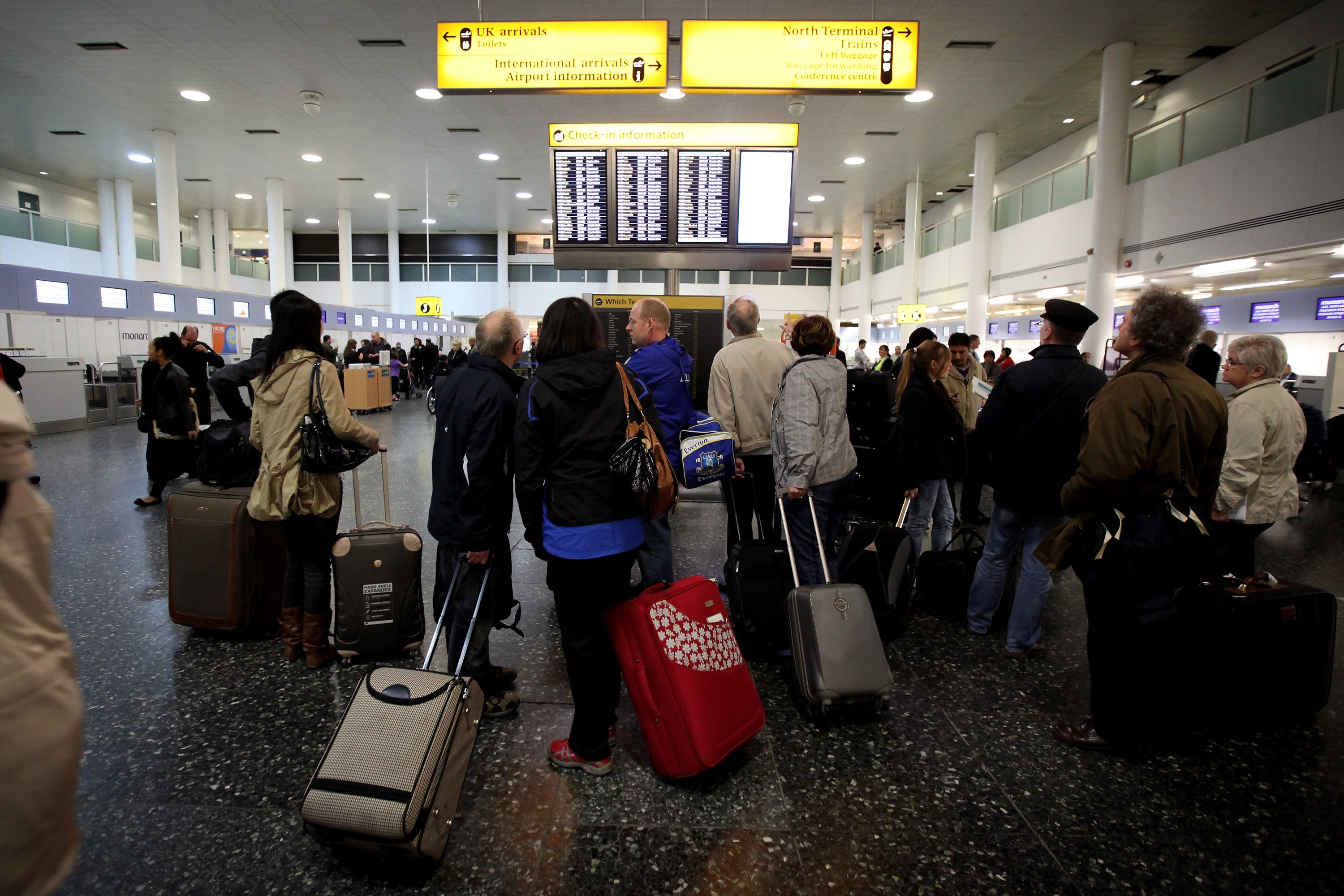Where is the best place in Crete for a peaceful break?
Simon Calder on Crete, legroom, and flight delay and cancellation compensation


Q I would like to visit Crete in late August for 10 days. I haven’t been before and would like a nice beach and some peace. Where’s the best place on the island for that?
Tony N
A The largest Greek island can provide plenty of attractive answers over its 160-mile length. These are my favourites, from west to east. Chania is my favourite Cretan city (much more appealing than the island’s capital, Heraklion). While it does not have a decent beach, the Akrotiri peninsula is nearby and accessible by bus, or by a short taxi ride from the airport. The village of Stavros at the northern tip has an excellent beach and a few bars, as well as a place in movie history: the closing scene of Zorba the Greek was filmed beneath the 1,000ft-high slab of limestone that towers over the beach, with Alan Bates and Anthony Quinn dancing the Sirtaki.
For a more conventional resort in the western half of the island, head for Rethynmo, about halfway between Chania and Heraklion. It is a pleasant seaside resort with a good beach, well placed for either city and also for exploring the south of the island.
For the peace you crave, though, I recommend instead travelling east for around 40 miles from Heraklion airport to Elounda. This tranquil location has a good beach fringed with tavernas, plus small and friendly places to stay. To seal its appeal, Elounda comes with two intriguing day trips. One is along the coast to the small and interesting port city of Agios Nikolaos. The other involves a boat to the offshore island of Spinalonga – a Venetian settlement, once a leper colony, that is rich in history and intrigue.
One word of warning about prices. If you are coming back in late August or the first few days of September, fares will be very high due to families returning to the UK – typically £300 one-way from Heraklion to London. You might find lower prices on the island of Rhodes, which is proving cheaper due to a drop in demand after the wildfires.

Q Are there any laws about minimum leg space on a plane? I flew on Avion Express, which was covering for Tui, from Corfu to Gatwick last Friday. I’m less than 6ft, but my legs were jammed against the seat in front. I have never had such bad conditions on any other flight.
Name supplied
A There are not, as far as I know, any legal stipulations about minimum legroom. The closest I can find is the implication contained in the rules for evacuating a plane. The European Union Air Safety Agency (Easa) requires that passengers and crew “can be evacuated from the aeroplane to the ground under simulated emergency conditions within 90 seconds”. If a squeeze between seats impeded such an evacuation, action would be taken. In practice, each aircraft type is certified for a maximum number of passengers. For the Airbus A320, which you flew on, the standard is 180. (Some more modern configurations squeeze in an extra row of seats, raising the capacity to 186, but do this by reducing the space taken up by the rear toilets and galley rather than by reducing the legroom.)
Avion Express uses the A320 and complies with the 180-passenger capacity limit. The airline specialises in “wet-leasing” planes to other carriers. That means it provides aircraft, pilots and cabin crew to help cover gaps in schedules, whether ad hoc (for example, if a plane “goes technical”) or longer term. Avion Express is covering for British Airways short-haul flights to and from Gatwick as well as for Tui. Any aircraft should be compliant with Civil Aviation Authority safety rules (Avion Express has a good safety record) and offer a decent level of comfort. So why your discomfort? I suspect it is down to the age of the aircraft, the type of seats fitted and the nature of your flight. The average Avion Express plane is over 15 years old. That means the aircraft is likely to be fitted with chunkier seats that take up more space and therefore reduce legroom. In contrast, new aircraft tend to have much slimmer seats.
I have had a similar experience to you on older A320s flying from Budapest to Baku in Azerbaijan and from Cairo to Socotra in Yemen. Both were “through the night” flights, as yours was. I believe tiredness and the difficulty of resting comfortably made them feel much worse than usual. Pick a daytime flight next time, if you can.

Q A job change means I am now using regional airlines frequently around the UK. Recently there have been many delays and cancellations, which is not conducive to business travel. Can you help me with the rules on compensation, please? If there is a weather-related delay, there is no compensation but you do get a hotel and meal allowance. If it’s a technical fault causing the delay, though, they pay out £220. But surely it should be a full refund plus £220? They argue that they got you to your destination and quote some legislation. Are they correct?
Yvonne B
A Regional aviation around the UK is precarious in terms of punctuality (though not for safety, thankfully). Many airports connected by regional airlines are exposed to severe weather straight from the Atlantic. The aircraft used are smaller than the standard Airbus A320/Boeing 737 gauge and may be more restricted in the winds they can tolerate than are these relatively big jets.
In the UK and the European Union, when a flight is heavily delayed or cancelled due to poor weather, the airline is obliged to look after passengers as you describe, with accommodation and meals. (This courtesy does not apply in the US and most other parts of the world.)
Under European air passengers’ rights rules, if the airline is responsible for a long delay or cancellation – eg due to a technical issue – then you are due £220 in cash compensation. This applies whether you arrive at your destination three hours later than scheduled (which would be inconvenient but probably not plan-wrecking) or are delayed by three days – a far more awkward scenario. You will get your money back only if you decide to cancel the flight. I have sympathy with airlines here: the obligations are onerous enough already. The UK came up with a post-Brexit framework for flight disruption which made much more sense, with compensation proportionate to the flight delay and the fare paid. But with three transport secretaries in under a year, the proposals seem to have been put on the back burner. So I do not foresee any changes to the current regime for disrupted passengers.
Email your question to s@hols.tv or tweet @simoncalder
Join our commenting forum
Join thought-provoking conversations, follow other Independent readers and see their replies
Comments
Bookmark popover
Removed from bookmarks